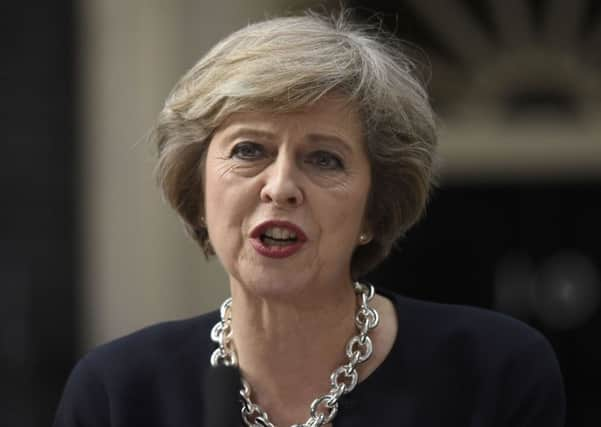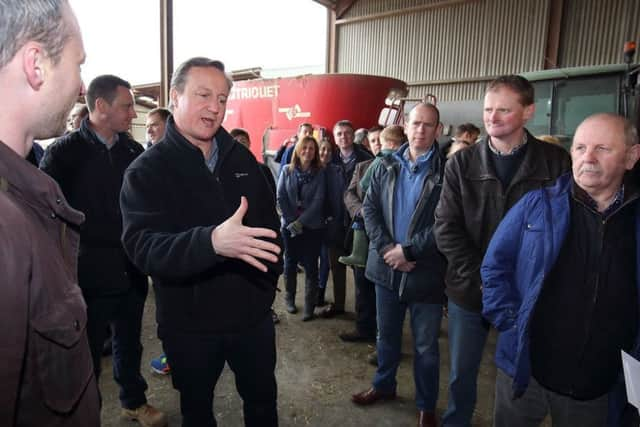Sam McBride: Does the Cameron doctrine still apply for Theresa May?


It is easy for the Conservative stance to be interpreted as apathetic – and unquestionably the government has faced far bigger problems – the Arab Spring, Islamist terrorism, the financial crisis and now Brexit.
But to simply see the prime minister’s refusal to fly to Belfast every time there is a dispute between the DUP and Sinn Fein is to simply view the situation through an Ulster-centric prism.
Advertisement
Hide AdAdvertisement
Hide AdIn fact, far from being passive, the government’s policy of keeping Stormont at arm’s-length is decidedly active.


What became the Cameron Doctrine on Northern Ireland was set out early in his premiership and stuck to rigidly throughout a series of crises, stalemates and spats.
At the end of his tenure, Mr Cameron could point to the fact that on his watch devolution survived unbroken for the longest period since 1972.
After many years of watching how Tony Blair and Gordon Brown readily either flew to Belfast or entertained Northern Ireland’s political leaders in Downing Street, rather than resolving things themselves, Mr Cameron determined to force local politicians to lock horns with each other, rather than coming to him.
Advertisement
Hide AdAdvertisement
Hide AdDespite the outraged complaints of Peter Robinson and Martin McGuinness, Mr Cameron stood firm, making clear that they should overwhelmingly deal with his secretary of state.


That gave more power to the secretary of state – who knew that the parties could not simply go over their head to Downing Street – and contributed to driving the DUP and Sinn Fein closer together than ever before.
And although the current complaints about British apathy were also levelled at Mr Cameron, he made explicit that the policy was deliberate and strategic.
That was most apparent in 2010 when Mr Robinson and Mr McGuinness demanded to meet the prime minister to protest about budget cuts and publicly threatened to invoke an obscure dispute resolution mechanism to force a meeting.
Advertisement
Hide AdAdvertisement
Hide AdDespite firm advice from senior NIO officials to meet Stormont’s leaders, Mr Cameron took his own advice and refused to do so. Eventually even Mr McGuinness came to accept that their budget had been set and they would not be able to overturn it.
Mr Cameron’s stance was grounded in a confidence that Stormont was far more stable than its leaders claimed. From that position, he was able to repeatedly face down the Executive – and particularly Sinn Fein over its threats about not implementing welfare reform.
Mr Cameron was so determined not to get drawn into the sort of crisis talks which for years had defined the peace process that even in major negotiations such as those leading to the DUP-Sinn Fein Fresh Start Agreement, he left much of the work to his secretary of state and the NIO.
Until now, Theresa May has had far more pressing issues than Northern Ireland. Now, suddenly, it is clear that this crisis – intertwined with debates about the mechanisms for dealing with Troubles cases and the post-Brexit border – has national implications.
Advertisement
Hide AdAdvertisement
Hide AdA cabinet meeting a fortnight ago was dominated by the implications of Brexit for both Scotland and Northern Ireland.
She now faces a major decision – does she continue to hope that by confining the crisis to Belfast that the DUP and Sinn Fein are forced work with each other, or is this a situation of such gravity that the prime minister now must intervene?